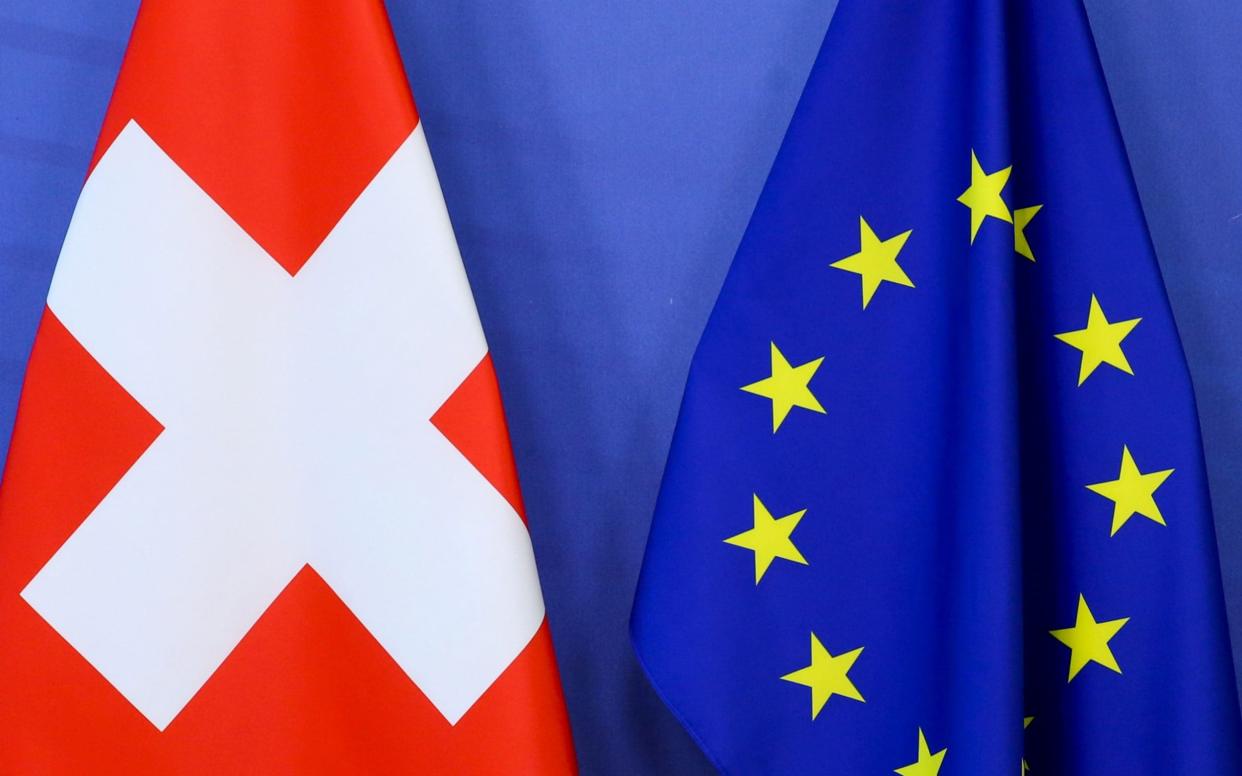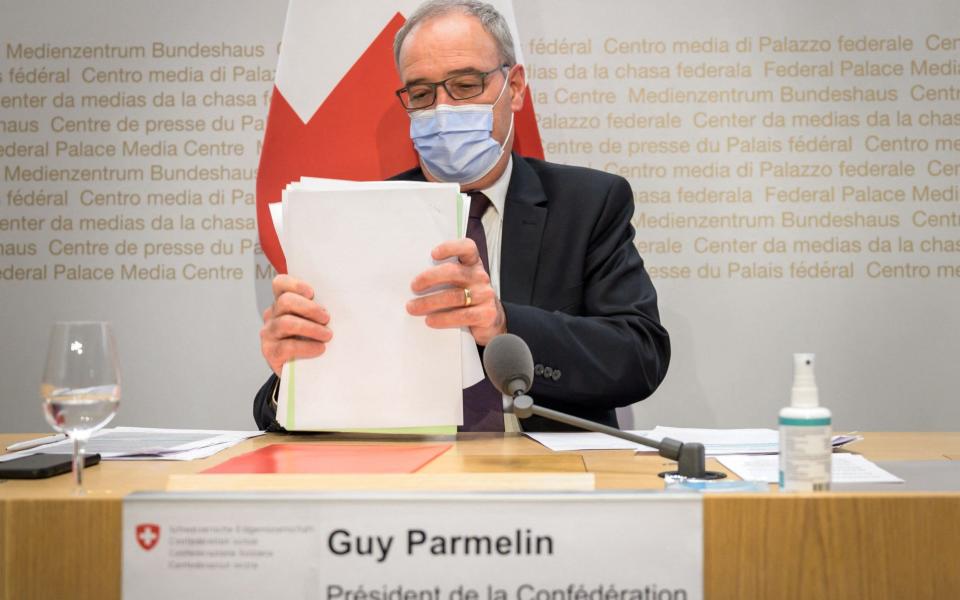Switzerland-EU trade deal collapses over Brussels’s freedom of movement demands

Switzerland said "no deal" to Brussels’ freedom of movement demands and pulled out of seven years of tortured trade negotiations with the European Union on Wednesday.
Bern pulled the plug after years of difficult talks over Single Market access that are reminiscent of the European Commission’s Brexit negotiations with the UK over the past four years.
"The Federal Council today took the decision not to sign the agreement, and communicated this decision to the EU. This brings the negotiations [...] to a close," the Swiss government said.
“There remain substantial differences between Switzerland and the EU on key aspects of the agreement. The conditions are thus not met for the signing of the agreement," it said after a cabinet meeting.
The commission, which negotiates on behalf of the 27 EU member states, said it took note of the “unilateral decision”.
“We regret this decision,” it said of the move to “terminate” negotiations, which began in 2013.
Swiss ministers blamed EU demands for full access to its job market, including for those seeking work. They said it could have led to non-Swiss citizens getting social security rights in the country.

Some 1.4 million EU citizens live in Switzerland and about 340,000 people commute across the border to work in an array of Swiss industries. The population of Switzerland stands at around 8.5 million people.
Brussels wanted Switzerland to frame the trading relationship into a single overarching treaty, which was a concession it won from Britain in the Brexit talks.
The single treaty would replace the 120 separate bilateral agreements, including a 50-year-old trade deal, that govern the two sides’ economic ties but would increase the EU’s leverage over Switzerland in any disputes
Switzerland is part of the Single Market, which almost completely surrounds it, and the EU is its largest trading partner. In 2020, The EU accounted for about 42 per cent of Switzerland’s exports in goods and for 50 per cent of its imports
It is not an EU member state and is not part of the EU’s Customs Union, which means it can negotiate its own trade deals.
EU officials said access to the Single Market depends on accepting Brussels’ rules and regulations, including free movement and the jurisdiction of the European Court of Justice.
They accused Bern of “cherry-picking” after Swiss negotiators refused to bow to their demands for a “level playing field” on issues such as state subsidies and regulatory alignment.
They had demanded dynamic alignment, with Swiss rules automatically changing to follow the EU’s over time.
One EU official said that without the deal new access to the Single Market would be impossible to negotiate and existing access would “erode” over time as the standing agreements aged.
One official said that new EU rules on medical devices had just come into force and that Switzerland would immediately be treated as any other non-EU country when bringing such equipment to the bloc’s market.
Failure to reach an agreement could harm numerous existing agreements, including cooperation in the areas of trade, education and research, the EU has warned.
The commission said that a lack of common rules could cause Switzerland to lose its "privileged" connection with the bloc's electricity system and warned that the lack of a framework accord was "hampering access of Swiss air carriers to the EU's internal market."
EU-Swiss relations have historically been close but complicated. In 2019, the EU refused to renew equivalence, a kind of market access for financial services, for Swiss stock exchanges in a bid to force the Swiss back to the negotiating table over the new treaty.
Last year, Swiss voters rejected a push to end free movement after backing a 2014 push to curb EU immigration.
Switzerland applied to join the EU in 1992 but, after also deciding not to become a member of the European Economic Area countries, withdrew its dormant application in 2020.
The UK insisted that freedom of movement and the jurisdiction of the EU’s top court had to end after Brexit and rejected regulatory alignment in the Brexit talks.
It left the Single Market on December 31 last year, which has created barriers to trade with the EU, but accepted some level-playing field guarantees in return for a zero-tariff trade deal on goods.

